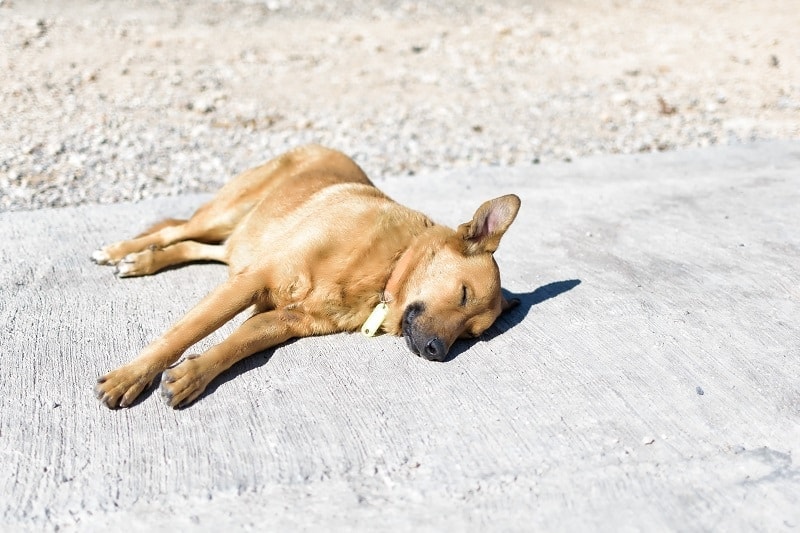Can Dogs Eat Tomatoes? Nutrition Facts & Safety Guide

Updated on
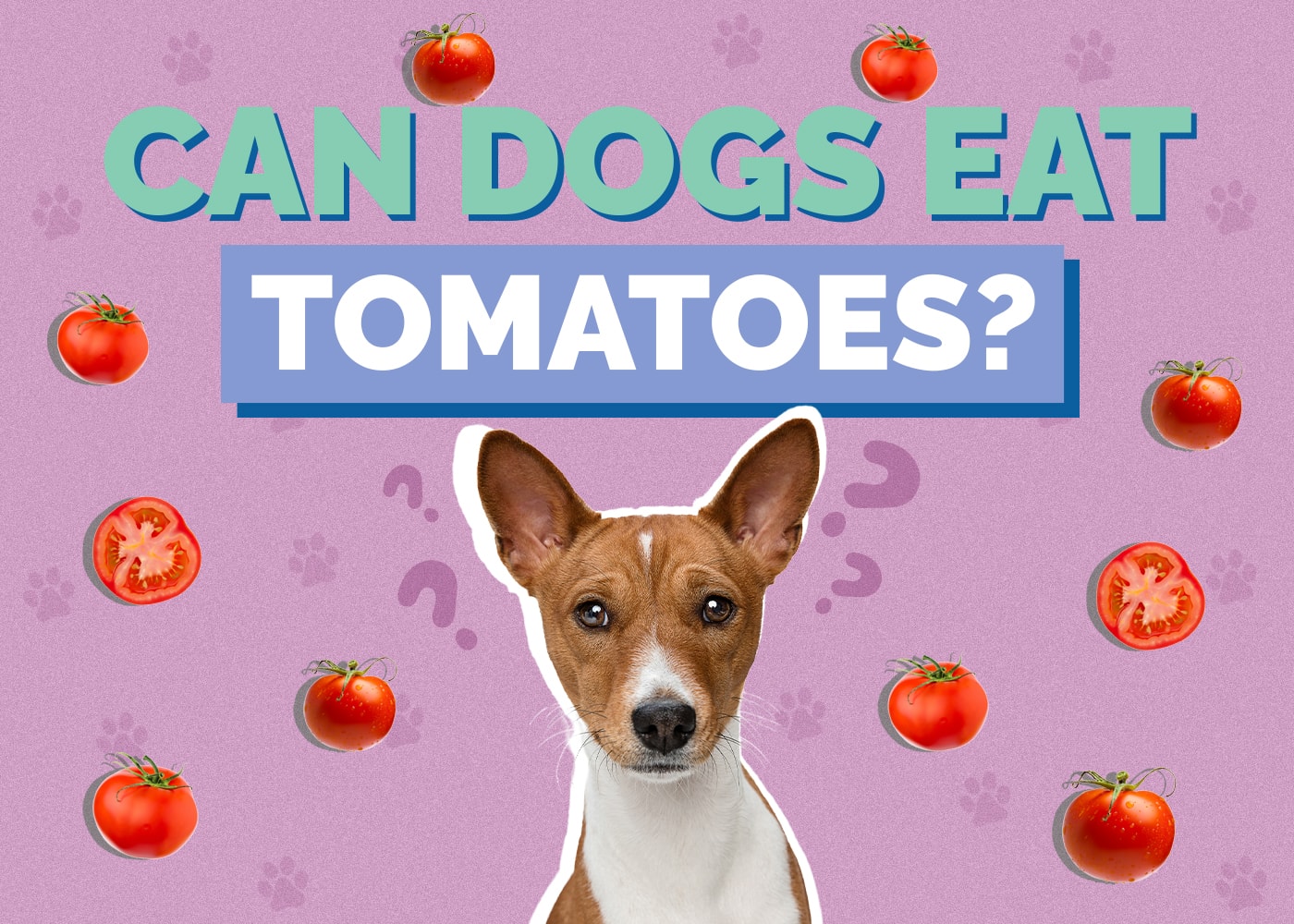
Click to Skip Ahead
Tomatoes are common ingredients in many cuisines around the world. If you are a dog owner, you may have wondered whether these fruits are safe for your furry friend to eat. After all, it’s your responsibility to make sure everything that you give to your pet is safe and healthy.
So, can dogs eat tomatoes? The answer is yes! If properly prepared and presented in moderation, tomatoes are safe for dogs. But there are important considerations and risks to keep in mind.
In this article, we delve into the topic of feeding tomatoes to canines, addressing the potential dangers, health benefits, and guidelines for safe consumption!
Can Dogs Eat Tomatoes?
Tomatoes themselves are generally safe for dogs to eat, but it is crucial to be aware of certain factors. While ripe tomatoes are generally harmless, the green parts of the tomato plant, including stems and leaves, contain a toxic substance called solanine.
It is best to remove these parts before offering tomatoes to your dog. Additionally, some dogs may have individual sensitivities or allergies to tomatoes, so it’s essential to monitor their reactions closely.
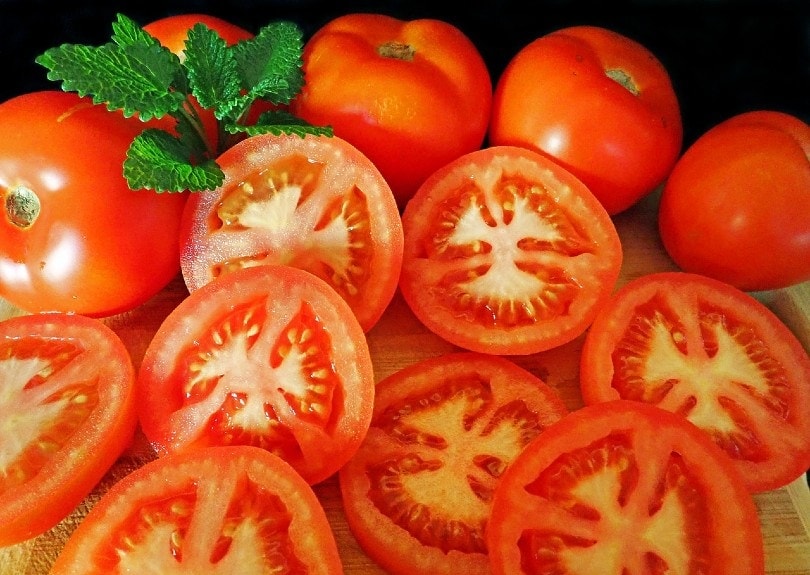
What Makes Tomatoes Potentially Dangerous for Dogs?
As part of the nightshade family, tomatoes are dangerous primarily due to the green parts of the plant. Solanine, a toxic alkaloid present in these parts, can lead to adverse effects in dogs if ingested in significant quantities.
Tomatoes also have another chemical called tomatine, which can be equally harmful. Distress from tomatine can cause irritation and damage to the liver.
Signs of poisoning may include gastrointestinal distress, weakness, confusion, tremors, and, in severe cases, seizures. To prevent any potential harm, it is advisable to remove the green parts of the tomato plant completely and to avoid offering green tomatoes.
Poisoning From Tomatoes in Dogs
Although tomato poisoning in dogs is relatively rare, it can occur if dogs consume excessive amounts of solanine and tomatine. It is essential to be cautious, especially with unripe tomatoes or tomato plants.
If you suspect your dog has ingested a substantial amount of solanine, it is vital to seek veterinary assistance immediately.
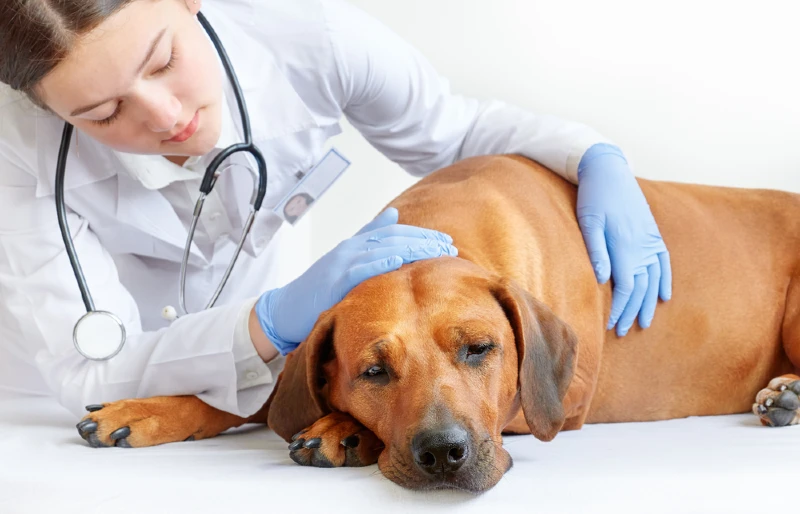
Signs of Poisoning to Look Out For
If your dog has consumed a toxic amount of solanine or tomatine from tomatoes or tomato plants, you should watch for specific signs of poisoning.
Common signs include the following:
- Gastrointestinal distress, such as vomiting and/or diarrhea
- Abdominal pain
- Excessive drooling
- Weakness and lethargy
- Confusion
- Dilated pupils
- Tremors and seizures
If you observe any of these signs, consult with your veterinarian for proper and immediate medical attention.
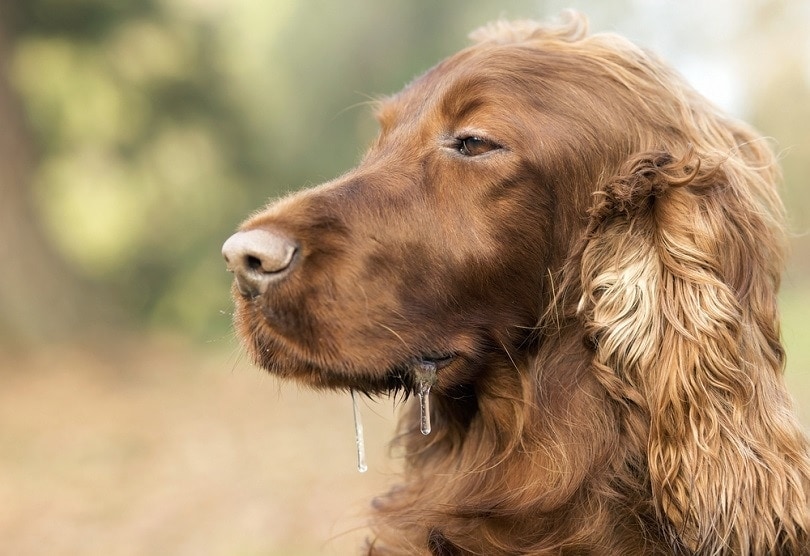
Are Tomatoes Healthy for Dogs?
Tomatoes offer certain health benefits for dogs when consumed in moderation. They are low in calories, fat free, and a good source of vitamins A and C. Additionally, tomatoes contain essential minerals like potassium and antioxidants like lycopene, which can support overall well-being.
However, it is important to note that dogs have different nutritional requirements than humans, and tomatoes should be considered as an occasional treat rather than a staple in their diet.
Potential Benefits of Tomatoes for Dogs
While tomatoes should not be relied upon as a primary source of nutrition for dogs, they can offer some potential health benefits. The antioxidants present in tomatoes, such as lycopene, have been associated with reducing the risk of certain cancers and supporting cardiovascular health.
However, it’s important to remember that these benefits are more significant for humans than for dogs, and further research is needed to fully understand the impact on canine health.
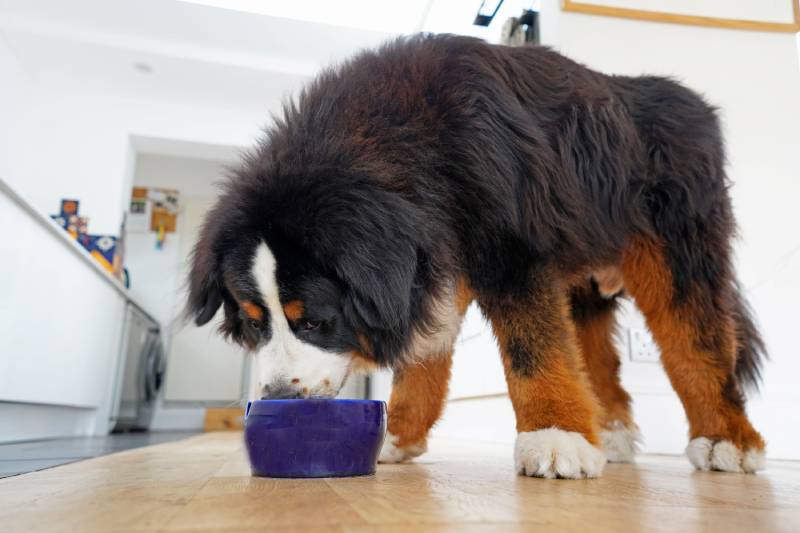
How Can I Safely Feed Tomatoes to My Dog?
To safely incorporate tomatoes into your dog’s diet, there are a few crucial steps to follow to prevent any potential harm and to maximize the benefits of tomatoes.
As mentioned earlier, it is important to remove all the green parts of the tomato. Ensure that all stems and leaves are removed before offering tomatoes to your dog. These parts contain glycoalkaloids, which can be toxic and cause illness to your dog. Ripe tomatoes are also considered the safest options for dogs, as unripe ones may cause stomach upset. Before feeding your dog, make sure all the tomatoes are ripe and ready to eat!
Remember to also treat tomatoes as occasional snacks and provide them in moderation rather than considering them a meal staple. Dogs have different nutritional requirements than humans, so portioning and controlling the amount per presentation is important not just for tomatoes but for other foods as well.
Lastly, remember that not all dogs are the same. Some dogs may be more sensitive than others. Observe your dog closely after introducing tomatoes to their diet. If any adverse reactions occur, such as itching, vomiting, or diarrhea, discontinue feeding them tomatoes, and consult your veterinarian.

Do Dogs Like Tomatoes?
In general, the taste preferences of dogs can vary greatly. While some dogs may enjoy the taste of tomatoes, others may not find them appealing. It’s important to remember that dogs have different taste receptors than humans, and their preferences can be influenced by factors like individual preferences and past experiences.
Some dogs may eagerly eat tomatoes when offered, while others may show little interest or even refuse them altogether. It’s always best to observe your dog’s reaction when introducing new foods and respect their individual preferences. If your dog shows no interest in tomatoes or actively avoids them, it’s perfectly fine to explore other fruits and vegetables that they may enjoy.
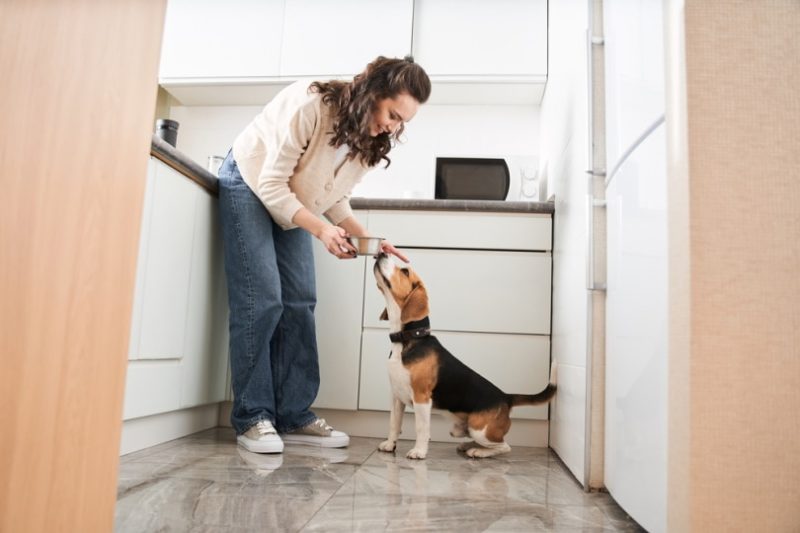
What Other Fruits and Vegetables Can I Feed My Dog?
Tomatoes are not the only fruits and vegetables that can be safely given to dogs. Many other options provide valuable nutrients and can be enjoyed as part of a balanced diet.
- Carrots
- Blueberries
- Pumpkin
- Apples
- Cucumbers
- Cantaloupe
- Peaches (stones removed)
- Watermelon
- Spinach
- Peas
Remember to introduce new fruits and vegetables gradually, monitor your dog’s response, and consult your veterinarian if you have any concerns.
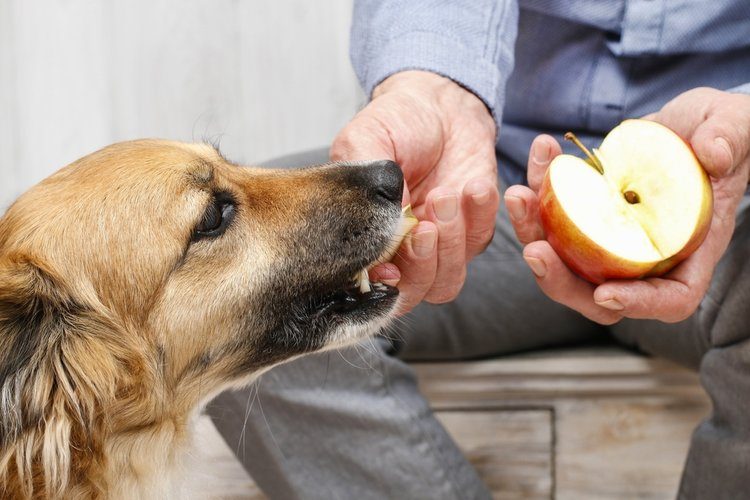
Final Thoughts
Dogs can eat tomatoes in moderation, as long as the green parts are removed. Ripe tomatoes are generally safe, but it’s essential to monitor your dog for any adverse reactions.
If you have any doubts or concerns, consult your veterinarian, who can provide personalized advice based on your dog’s specific needs. By following these guidelines, you can safely share a tasty and nutritious treat with your furry friend!
- You Might Also Be Interested in: Can Dogs Eat Cherry Tomatoes?



